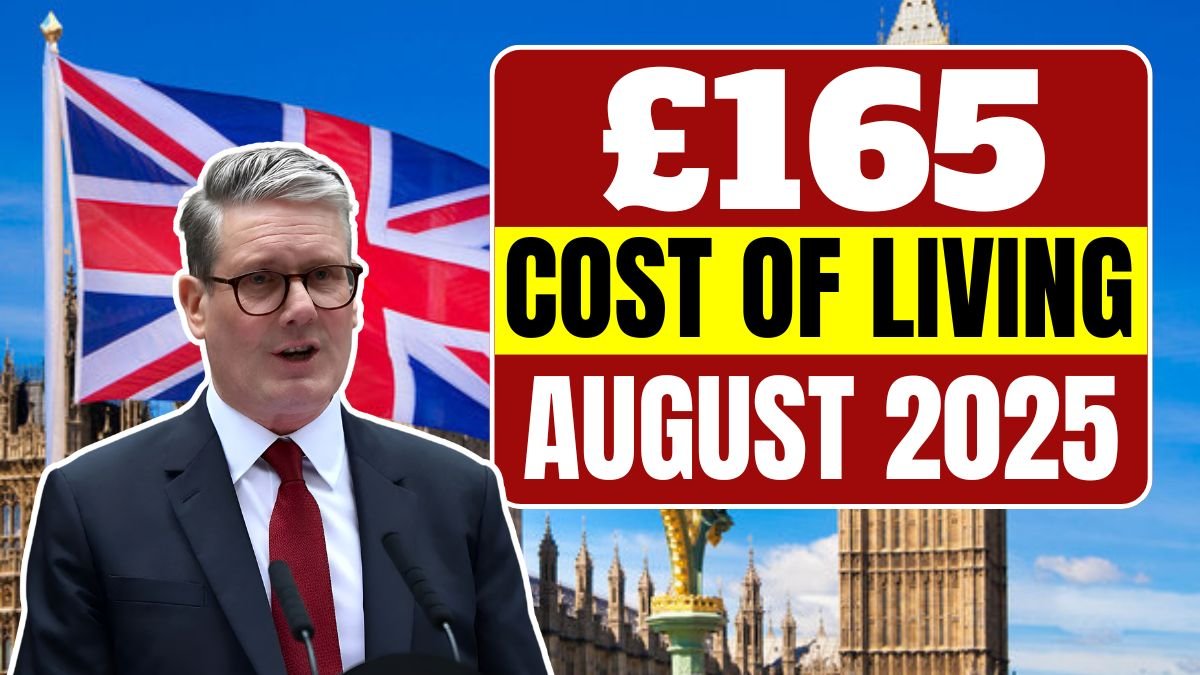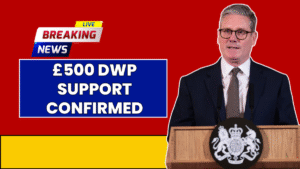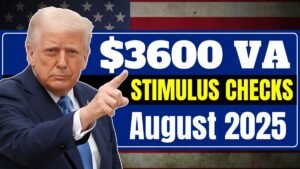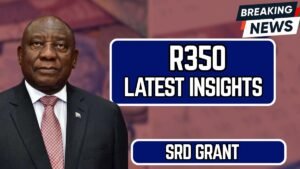£165 Cost of Living Payment in August 2025 – The sharp decline in the UK economy during 2024-25 has broken the back of the common man. Inflation, unemployment and rising prices of essential commodities have made many families financially extremely weak. To ease this financial pressure, the government has announced the ‘Cost of Living Support Payment’ scheme, under which eligible people will be given a one-time assistance of £165 from August 2025.
Although this amount is less than before and does not compensate for interest rates, the government still believes that it will definitely bring some relief to families struggling with crisis.
Eligibility: Who will get this payment?
Not everyone will get the benefit of this scheme. The Department of Work and Pensions (DWP) has set strict eligibility conditions for this. This assistance will be given only to those who are already taking one or more of the following benefits:
- Universal Credit
- Pension Credit
- Income-based Jobseeker Allowance (JSA)
- Income-based Employment and Support Allowance (ESA)
- Income Support
- Working Tax Credit
- Child Tax Credit
According to Margaret Willoughby, an advisor at Citizens Advice Birmingham, “This time it is necessary that the person is receiving these benefits in the period from 26 January 2025 to 25 February 2025.”
That is, if a person is not a beneficiary during that entire time, he will not get the money of this scheme. This time the government has planned to cover about 80 lakh families under the budget, which is slightly less than before.
Payment process and date
The government has clarified that this assistance amount of £ 165 will be given from 8 August 2025.
- People who are getting benefits under DWP will see the payment directly in their bank account under the name “DWP COL”.
- People who are getting only Tax Credit and are not eligible for any benefit of DWP will be paid by HMRC from 16 August 2025, which can be seen in the account under the name “HMRC COL”.
The payment will come to most accounts within two weeks.
Fraud prevention warning
The government has warned citizens that if anyone asks for bank details through phone or message and introduces himself as a government official, then be careful.
DWP spokesperson Thomas Hargreaves says, “The government never asks for your bank details for this payment.” So avoid any suspicious contact and report such cases.
Why was this scheme needed?
Although according to ONS (Office of National Statistics), there has been a slight decline in the inflation rate, the situation of ordinary people remains extremely complex:
- Total income has declined by 2.9%.
- The supply of food items was 4.7% in January 2025, which was 19.2% in March 2023.
- Energy bills have definitely come down, but they are still much higher than the pre-Covid level.
Economic expert Dr. Eleanor Jameson says, “There is definitely improvement in the figures, but the economic battle of the common man is not over yet. Three years of troubles have wiped out people’s savings.”
Is this assistance different from previous schemes?
- Change in assistance amount
- Earlier when the energy crisis was at its peak (2022-23), the government provided assistance of up to £1,350. This time the amount is only £165.
- According to former Office for Budget Responsibility chief Robert Chott, “Now the government is also keeping in mind its fiscal deficit, so the assistance amount has been reduced.”
- New definition of eligibility
- Earlier it was only seen that the beneficiary was getting the benefit on any one day. But now it is necessary that the person is getting the benefit in the entire prescribed period (26 January – 25 February 2025).
Is the assistance of £165 really effective?
People’s reactions to this are mixed.
James Bartle (58, Cardiff), who is on Pension Credit, says:
“The £165 is decent, but it’s not a huge relief. My energy bill alone is £90 a month, so it’s not much relief.”
Karen Wilson (single mother, Manchester), who is on Universal Credit, says:
“This money will allow me to buy school supplies for the kids without worrying about how I’ll manage food. Not a huge help, but it’s still a relief.”
Michael Ashford (Director, Money Advice Trust) says:
“It gives some immediate relief, but we need a long-term solution.”
What happens next?
So far the government has not clarified whether there will be more such support schemes in the future.
According to the Treasury Department, “Further plans will be decided based on the economic situation and resources.”
The Institute for Fiscal Studies estimates that the financial situation of low-income families will only fully improve by mid-2026.
Meanwhile, food banks and debt advice services are preparing as they anticipate that financial difficulties will continue into 2025.
William Davis (director of the Trussell Trust) says:
“This payment is welcome, but we expect demand for food assistance will continue into 2025.”
Conclusion: A little ray of relief
The £165 Cost of Living Support, which will arrive in August 2025, is not a huge amount, but it will bring some relief to families who are struggling with persistent financial problems.
The government should focus on long-term strategies in future so that this does not become just a temporary solution.
Beneficiaries are urged to be vigilant against fraud, and contact the relevant department if they do not receive a payment.
For now, this is a welcome step forward — but the real battle is yet to come.
FAQs On £165 Cost of Living Payment in August 2025
Q. Who is eligible for the £165 Cost of Living Payment?
A. Only those receiving benefits like Universal Credit, Pension Credit, Income-based JSA or ESA, Income Support, Working or Child Tax Credit between 26 Jan – 25 Feb 2025.
Q. When will the payment be made?
A. DWP will start payments from 8 August 2025. HMRC will pay tax credit-only recipients from 16 August 2025.
Q. How will the payment appear in bank accounts?
A. It will appear as “DWP COL” or “HMRC COL” depending on the paying authority.



